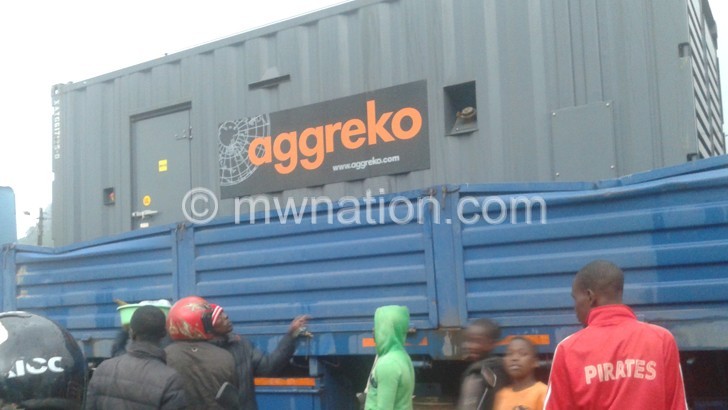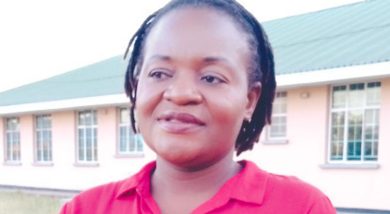Mera confirms power tariff hike
When President Peter Mutharika commissions the 55 megawatts (MW) generators to add to the national grid today, electricity consumers should brace for an average 24.67 percent hike in electricity tariffs based on an earlier agreement.
Malawi Energy Regulatory Authority (Mera) chief executive officer Collins Magalasi said in an interview yesterday the use of the diesel-powered generators by Electricity Supply Corporation of Malawi (Escom) will push into effect a tariff raise proposal approved last year.
He said: “We received a request from Escom that they wanted to adjust tariffs. As per Mera mandate, we scrutinised their request and we settled on this average [24.67 %].

“But we gave them conditions that they cannot start implementing the new tariffs unless they start generating electricity using the generators. We, therefore, expect them to roll out [the new tariff structure] according to the condition we gave them.”
Magalasi also said Malawians should not look at the 24.67 percent increase at face value as the figure is an average and that as per Escom billing, some consumers will pay more than others.
He said as a regulator, Mera will be monitoring the roll out of the new tariff.
The President is today set to commission 55MW diesel-powered generators at the former Escom Football Ground in Chichiri, Blantyre.
The diesel generators are a desperate and short-term solution to electricity generation challenges facing the country. Escom and Electricity Generation Company (Egenco) have attributed the reduced generation capacity to low water levels in Lake Malawi and its sole outlet, Shire River, where Egenco produces over 90 percent of its 351MW installed generation capacity. However, power production now fluctuates between 180MW and 210MW.
The 55MW generators come after Egenco on January 10 this year connected six MW—produced from three generators of two MW each installed at Luwinga in Mzuzu—to the national grid.
Earlier on January 4 this year, Escom took delivery of 129 tracks carrying generators and other equipment to produce 78 MW of which 35MW were expected to be installed in Blantyre, 23MW at Chinyama in Kasungu and 20MW at Kanengo in Lilongwe.
On the other hand, Egenco planned to install 36 MW with Mzuzu already installed 6MW, and 10 MW was expected to be installed in Lilongwe and 20MW in Blantyre.
Escom is on record as having said power from the generators will be added to the national grid and ease long hours of power rationing.
Currently, Escom charges K58.80 per kilowatts per hour and with the 24.67 percent increase, the price of electricity per kilowatts will likely jump to K73.23.
Escom acting public relations manager George Mituka refused to give more details on the generators, saying the information will be provided during the launch.
Consumers Association of Malawi (Cama) executive director John Kapito has since welcomed the new tariffs saying what Malawians want is electricity.
He was optimistic that the commissioning of the generators in Blantyre will ease the prolonged power outages.
Said Kapito: “Let’s look at the impact of the electricity to the economy. What Malawians are looking for is electricity. It is better to have this increase than staying without electricity. Businesses have gone down because of blackouts. It’s fine if they [Escom] are going to give us electricity.”
But reacting to the pending tariff increase, Malawi Confederation of Chambers of Commerce and Industry (MCCCI) chief executive officer Chancellor Kaferapanjira said Escom should explain their logic to come up with the new tariffs.
He argued that the power supplying company owed Malawians their money.





